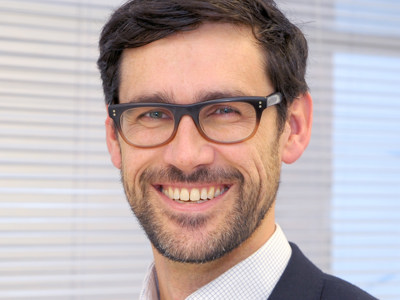
Court of Appeal agrees to hear HS2 environmental challenge
The Court of Appeal has decided to hear Chris Packham's appeal regarding an application for permission for judicial review of the Prime Minister's decision to proceed with the HS2 railway project. The hearing has been listed for 8 July 2020.
Posted on 26 June 2020
Lord Justice Lewison held that the matter is of “considerable public interest” and ordered that a rolled-up hearing be listed before mid-July in light of the fact that further works by HS2 Ltd and its contractors are scheduled to take place. A rolled-up hearing means that the court will first consider whether Mr Packham has permission to appeal and, if permission is granted, it will then immediately consider his application for judicial review.
On 3 April 2020 Mr Packham, represented by law firm Leigh Day, applied to the High Court for an interim injunction to stop the irreversible destruction of ancient woodlands pending the outcome of a substantive judicial review of the HS2 decision. The High Court declined to grant an injunction and refused permission for judicial review. Mr Packham subsequently sought permission to appeal from the Court of Appeal.
Mr Packham’s appeal focuses on two grounds both concerning alleged failings in the way in which the Prime Minister and the Transport Secretary reached their decision to give the HS2 project the go-ahead. First, Mr Packham contends that the Prime Minister and the Transport Secretary were told (and so would have proceeded from an understanding) that the Oakervee Report set out a sufficient account of environmental impacts for the purpose of their decision to go ahead with HS2, when in fact it had not done so.
Second, Mr Packham argues that the Prime Minister and the Transport Secretary failed to have regard to the implications of the Paris Agreement when they took the decision. The Paris Agreement requires a restriction on the global increase in temperature by 2050. Any addition in emissions between now and 2050 will negatively impact on such temperature increases and thereby on the commitments made under the Paris Agreement. It is Mr Packham’s case that in fact the Prime Minister and Transport Secretary were not told this and so they failed to take into account the implications of the Paris Agreement, particularly as regards the increase in carbon emissions during the construction period of HS2 (which predates 2050).
In his appeal Mr Packham also highlights that the UK has put in place a series of consecutive five-yearly carbon budgets to steadily reduce emissions over the intervening period between now and 2050. The UK is not currently on track to meet its fourth and fifth budgets (which cover the years 2023-2032). The construction emissions from HS2 would, therefore, further undermine the Secretary of State’s duty to meet these carbon budgets (under section 4(1)(b) of the Climate Change Act 2008). The appeal contends that the PM and Secretary of State were not informed about this issue before making their decision to go ahead.
Mr Packham said:
“I am delighted that the Lord Justices see merit in hearing the appeal and that they have acknowledged the ‘considerable public interest’ in the case - a public interest which spans the heinous and irreparable damage done to ancient woodland, breeding birds, badgers and bats this Spring, the complete incompatibility of this project to the government’s obligations to address climate change, the appalling conduct of HS2 Ltd and its employees in a time of global crisis, and the future drain that the project will be on that public’s purse, which due to the pandemic is empty. The public have been conned by HS2, hopefully now we, the public, will see some justice.”
Tom Short, solicitor at law firm Leigh Day, said:
“Our client is encouraged by the Court of Appeal’s decision to hear his case and its recognition of the considerable public interest in the matter. He was disappointed by the lower court’s decision and welcomes the scrutiny of environmental concerns around the HS2 project that a hearing in the Court of Appeal will bring, including in respect of climate change considerations. As this week’s CCC report has shown, surface transport is the single highest emitting sector in the UK since 2015 and the sector is off track to contribute as required to achieve Net Zero and meet our Paris obligations. Our client believes that a major surface transport project that increases emissions is contrary to the UK’s climate obligations and seriously risks imperilling our future. Mr Packham has been buoyed by the tremendous support his case has received from members of the public and from environmental experts who provided witness evidence including the RSPB and the Woodland Trust.”
Mr Packham is represented by solicitors Tom Short and Carol Day, and paralegals Lewis Hadler and Rhiannon Adam, at law firm Leigh Day. Counsel for Mr Packham are David Wolfe QC of Matrix Chambers, and Merrow Golden of Francis Taylor Building.



